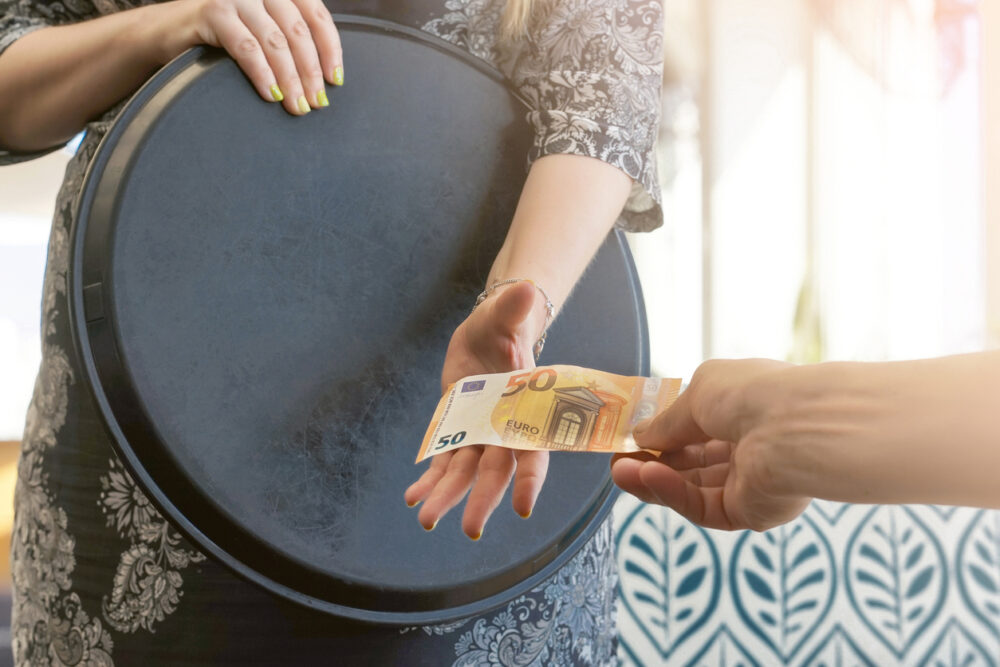Your passport doesn’t grant you a license to be clueless.

Traveling abroad is an incredible opportunity to broaden your horizons, but it’s also a chance to make a terrible impression if you’re not careful. Certain behaviors that might be normal or acceptable back home can come across as rude, ignorant, or just plain uncouth in a different cultural context. These are the tell-tale signs of an inexperienced and clueless tourist.
Avoiding these common blunders is the key to being a respectful and welcomed guest, rather than becoming a walking stereotype that makes the locals cringe.
1. You are dressed like you’re going to the gym.

While comfort is key when traveling, there’s a difference between being comfortable and being sloppy. In many parts of the world, especially in Europe, people tend to dress more formally in their daily lives. Showing up to a nice restaurant, a historic church, or even just a city street in athletic shorts, a sports jersey, and flashy running shoes is a dead giveaway that you’re a tourist.
It shows a lack of respect for the local culture and its customs. You don’t need to wear a suit, but packing a pair of decent trousers or a simple dress and comfortable but stylish walking shoes will help you blend in and show that you’ve made an effort, Business Insider reports.
2. You speak English very loudly and slowly to be “understood”.

This is a classic and deeply condescending tourist behavior. When faced with a language barrier, many people instinctively start speaking English much louder and slower, as if the person they are talking to is hard of hearing or a small child, according to The American Prospect. This does not make you any easier to understand, and it comes across as incredibly arrogant and rude.
The person you are speaking to is not stupid; they just don’t speak your language. A better approach is to speak in a normal tone, use simple words, and have a translation app ready on your phone. Learning a few basic phrases in the local language is even better.
3. You complain that things aren’t like they are “back home”.

Nothing marks you as a clueless traveler faster than constantly complaining that things are different from how they are in the United States. Complaining that the coffee is too small, that there’s no ice in the water, that the stores close in the afternoon, or that the customer service isn’t friendly enough is incredibly obnoxious, as shared in Slate Magazine. The entire point of traveling is to experience these differences.
A seasoned traveler embraces the local way of doing things, even if it’s inconvenient. Complaining about the local customs shows a profound lack of cultural curiosity and makes you look like you wish you had never left home in the first place.
4. You only eat at American fast-food chains.

One of the greatest joys of traveling is experiencing the local cuisine. Choosing to eat at a McDonald’s, Starbucks, or KFC when you are in a country with a rich and delicious culinary tradition is a major travel foul. It shows a complete lack of adventurousness and a refusal to engage with the local culture in its most basic and enjoyable form.
While there’s nothing wrong with wanting a familiar taste now and then, making it your default choice is a sign of a truly uncurious traveler. You are missing out on a huge part of the travel experience and sending the message that you are not interested in the culture you are visiting.
5. You are completely oblivious to local tipping customs.

Tipping is one of the most confusing things for American travelers, and getting it wrong can be very awkward. In the U.S., a 20% tip is standard, but in many parts of the world, this is considered absurdly extravagant or even offensive. In Japan, for example, tipping is not a part of the culture and can be seen as an insult, implying that the staff is not paid a proper wage.
In Europe, a small tip of a few euros or simply rounding up the bill is often sufficient. Not taking the time to learn the local tipping etiquette shows a lack of respect and is a clear sign of an inexperienced tourist.
6. You expect American-style customer service.

The American style of customer service, with its emphasis on being overly friendly, chatty, and fast, is not the global standard. In many cultures, service is more reserved, formal, and less intrusive. A waiter in Paris is not going to introduce themselves by name and tell you their life story; they will take your order efficiently and professionally.
Demanding or expecting American-style “service with a smile” can come across as needy and rude. Understanding that different cultures have different norms for service interactions is key. What you might perceive as bad service is often just the local, more reserved style.
7. You are loud and boisterous in public spaces.

Americans, in general, tend to speak at a higher volume than people in many other cultures. A conversation that seems normal in a U.S. restaurant can sound like shouting in a quiet European cafe or on a crowded Japanese subway. Being loud and drawing attention to yourself in public spaces is a classic stereotype of the obnoxious American tourist.
Being mindful of your volume, especially on public transportation, in restaurants, and at religious sites, is a basic sign of respect. The goal is to observe the local culture, not to overwhelm it with your own presence. Using your “inside voice” is always a good rule of thumb.
8. You treat every interaction as a transaction.

In many cultures, a social pleasantry is expected before getting down to business. In the U.S., it’s common to walk into a shop and immediately ask for what you want. In France, however, it is considered very rude to not say “Bonjour, madame/monsieur” upon entering a small shop before you start Browse.
Failing to observe these small social rituals can mark you as a rude and culturally unaware tourist. Taking a moment to learn the basic greetings and pleasantries and using them in your interactions shows that you see the people you are dealing with as human beings, not just as service providers.
